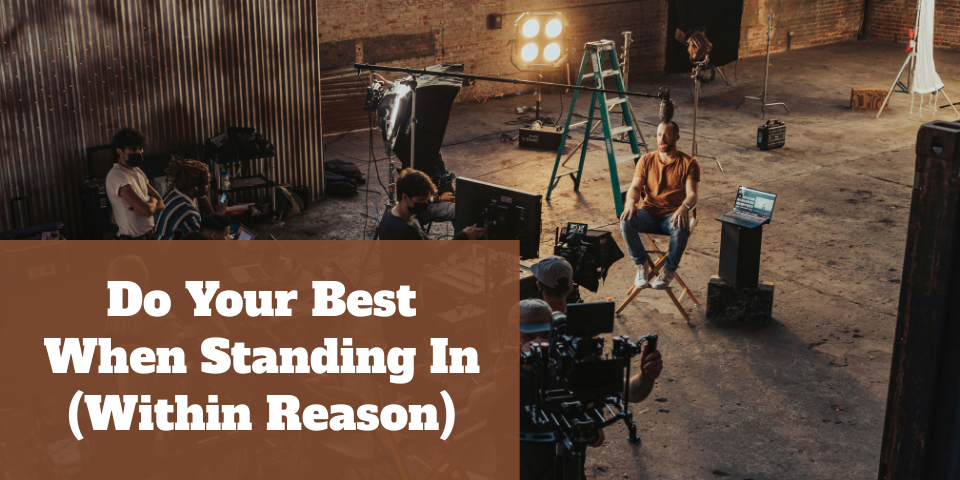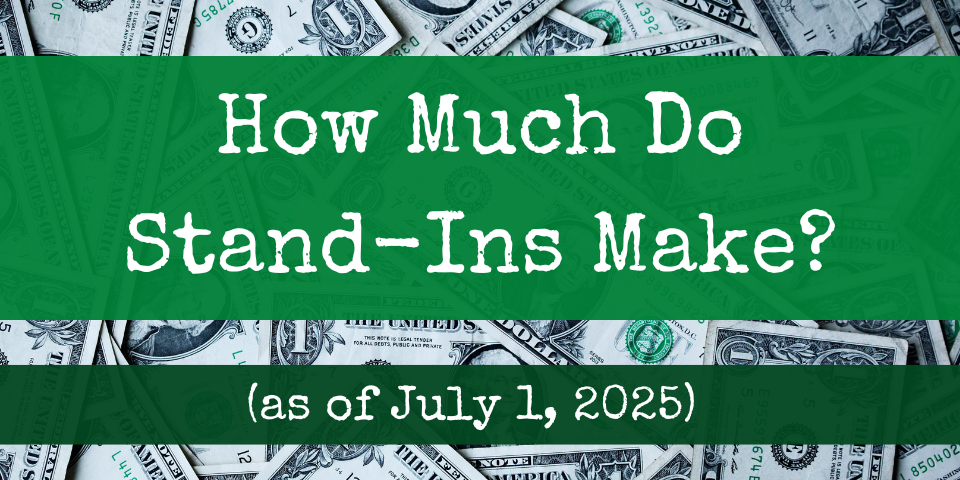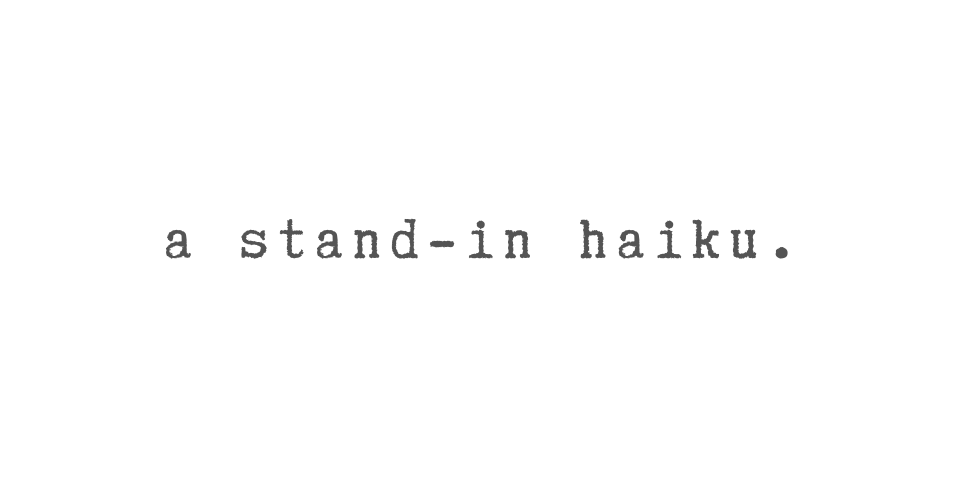In her August 12, 2018, column on the Financial Times website titled “How to cope when your stand-in smashes it” (read it here), writer Pilita Clark confesses about her experience of coming back from vacation to learn that her replacement wrote a column that went viral.
While Clark’s column has nothing to do with stand-ins in television and film, her article does lead cutely with a featured photo of an understudy stepping in to successfully perform the lead in a production of the musical Chess.
At that, what Clark says about insecurity in the article probably does affect at least some principal actors who happen to witness — accidentally or otherwise — their stand-ins doing second-team rehearsals, especially when those stand-ins are legitimate actors or who give great performances during second-team rehearsals. Clark writes:
[N]o one is ever supposed to admit to being petty and insecure enough to be bothered by a star replacement. If a nicer, cleverer version of you is doing really well in your job, the correct response is: what a relief! They are younger and cheaper, too? How marvellous to see a promising newcomer getting a break!
But whether the stand-in did better or worse than the principal actor is irrelevant. If that actor is feeling insecure, even a subpar rehearsal and delivery of lines by a stand-in may mess with the actor’s mind, making the actor question his or her acting choices and potentially creating an awkward situation for the actor, stand-in, or others on set.
Clark reports on some advice in the face of insecurity that your stand-in is or will be better than you. She mentions the following:
- Pick your own stand-in
- Choose a “hateful idiot” so you know that stand-in will not upstage you, but be careful not to choose someone who will create more problems.
- Choose a “mediocre” replacement, one who is “good enough” but not at good as you, so there is both no threat of being upstaged and also no threat of additional problems.
- Divvy up your work
- With respect to TV/film stand-ins, this might mean never having just one person be your stand-in, but instead have your stand-in work done by an assortment of utility stand-ins, or by having different people stand-in each day.
But in the end, Clark says to cool it on the insecurity. The stand-in is unlikely to replace you completely, and temporary replacements are to be expected. She writes:
Ultimately, there are times when work simply has to take second place and someone else will need to replace you. Worrying may be natural but it is also utterly pointless.
Have you ever worked as a stand-in then replaced your actor on a TV show or film? Has your stand-in work ever led to your actor being fired? Share your wild upgrade experiences below!





Leave A Comment